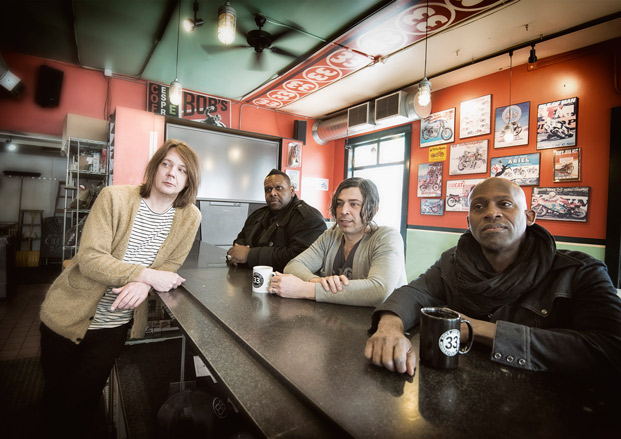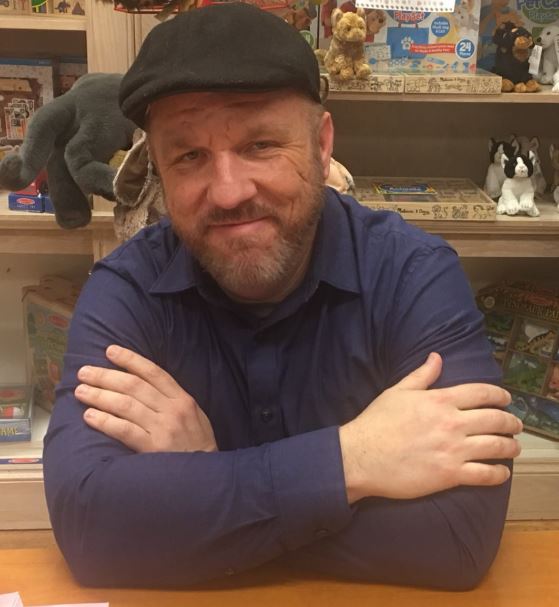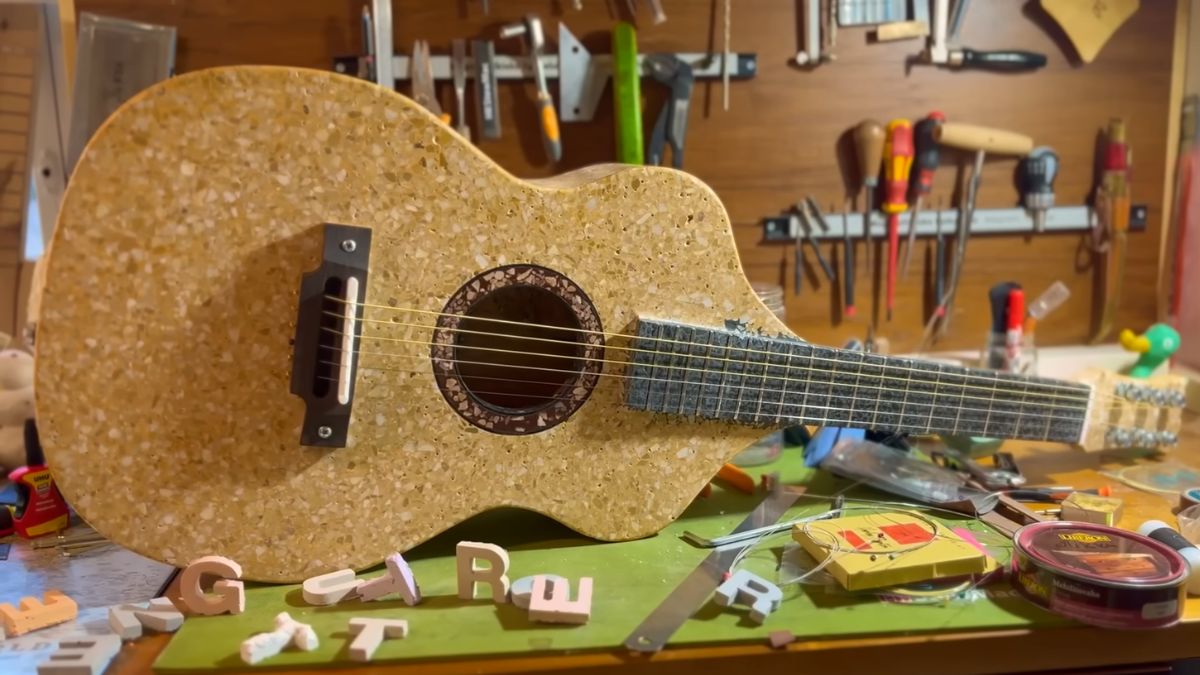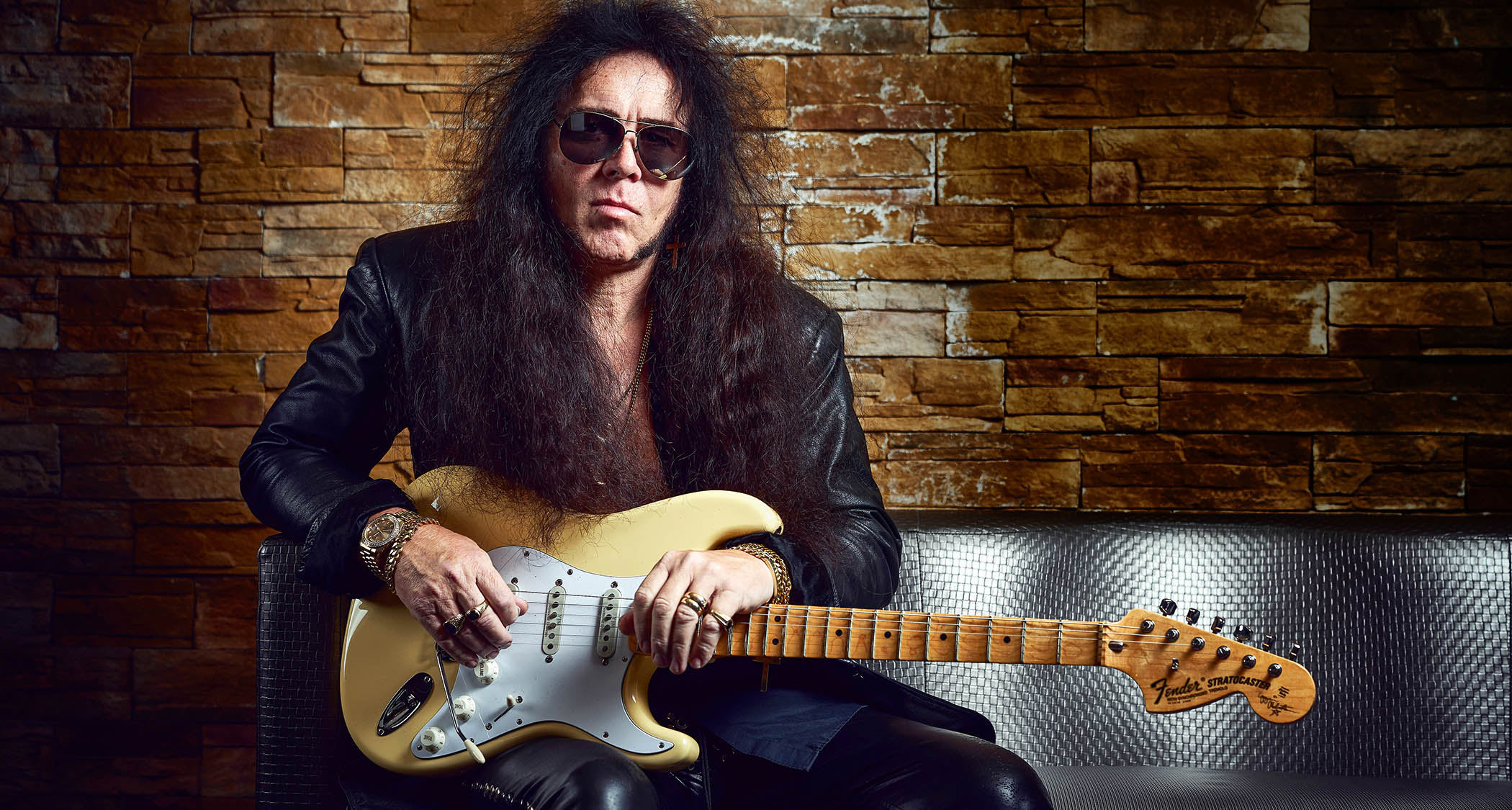‘Change of Fortune’: David Pirner Talks New Soul Asylum Album, Gear and 'Grave Dancers Union'

Change of Fortune, the new album by Soul Asylum, is a record that's nearly four years in the making.
It was recorded at a time when the band had been touring non-stop—not to mention going through lineup changes that included the departure of founding member Dan Murphy.
But the wait was worth it. Soul Asylum loyalists will be happy to know the group's sound—and Pirner’s knack for storytelling—are front and center on Change of Fortune. Pirner and company have delivered a refreshingly honest album that happens to be a (welcome) sonic punch in the nose.
Soul Asylum is David Pirner (guitar/vocals), Michael Bland (drums), Winston Roye (bass) and Justin Sharbono (guitar).
We recently spoke to Pirner about the new album, his gear and more.
How would you describe the sound of Change of Fortune and how it relates to some of Soul Asylum’s previous albums?
Over the years, you really start to understand how the sound spectrum spreads itself out between the high end and low. I specifically remember sitting in a restaurant in Germany in the mid-Eighties. They put on our record “While You Were Out” and we all just looked at each other and were like, “There’s no fucking bass drum on this record! What the fuck?” [laughs]. There’s more low-end on this record than any other Soul Asylum record. I can really feel the power of Michael Bland and Winston Roye. I’m a low-end junkie and that was a goal worth achieving.
Get The Pick Newsletter
All the latest guitar news, interviews, lessons, reviews, deals and more, direct to your inbox!
You’ve mentioned that this record is also one of your most honest. How so?
I’ve always liked the idea of having fewer people looking over my shoulder and being left to my own devices. It’s something I’ve always been chasing down. To that effect, the players in this band can play anything and are so open-minded and up for a challenge. I think that was a big part of it. To push the envelope about what the band can do.
How did you approach songwriting for Change of Fortune?
It was pretty much the same way I always do it. A seed usually happens: either a phrase or a melody or a chord progression. I’m looking at a piano and acoustic guitar right now and I also have a Pro Tools studio in the basement. Between those three things is where the seed comes from, and I’ll start recording and see where it goes. But it's still fun sometimes to just walk into a practice space with an acoustic guitar, start playing something and having everyone else join in.
Let’s discuss a few tracks from Change of Fortune. What can you tell me about “Supersonic”?
I remember a lot of that song came from the bass line. I wanted it to be really driving and pushing and the melody just came to me.
“Can’t Help It”
It’s funny because that song actually turned out to be the opposite of what I had envisioned. I originally sat down with an acoustic guitar and wrote it. I knew it was cool, but as I was singing lyrics off the top of my head and rambling into a tape recorder, it didn’t take long for me to go, “Oh fuck! This would sound really good if it was loud with electric guitars!”
“Doomsday.”
That song has a history. We tried a version of it a long time ago and it kind of fell off the radar because it wasn’t quite finished. I continued to work on it and played it for Michael and John Fields [producer]. By that time, I had a few more tasty bits for it. It slowly built from there. It’s always been a constant amusement for me when people say the end of the world is coming. They’ll even have an exact date for it, and then when it doesn’t happen, they simply change the date. It’s like, is that what you want? Is that why you keep saying it? It seems like a weird thing to be obsessed with.
What was the recording process like?
I learned a lot about space from listening to and reading about Miles Davis and how one really great note is better than 27 so-so notes. It’s what you don’t play that’s more important than what you do play. You have to leave space for things to happen. That’s something me and Michael have been working with John on over our last three records. You still want the roaring guitars, but it takes years of trial and error and learning how it all works to get the results.
What are the band’s touring plans?
The dates are starting to come in, and we’re champing at the bit to get out there. Hopefully, we’ll be touring for the next few years on this record and will be anywhere and everywhere.
Twenty-five years ago, you began working on Grave Dancers Union, which became the band’s breakthrough album. What was your mindset like at that time?
I remember we made And the Horse They Rode In On and had toured on it endlessly, playing in tiny spaces at airplane decibels. Then after the last gig, I remember coming back home and discovering I had fucked up my hearing. I had been all about electric, loud shit all my life and had actually thought I was going deaf. I went into a deep depression and remember thinking, “How can I continue to make music if I can’t hear it?” It made me take a pause and reflect on a lot of different things. All of that went into the making of that record.
It was also the point where I picked up the acoustic guitar for the first time. I remember we went in with a 1/4-inch 8-track machine and made around 20 songs that were all acoustic. I was playing acoustic piano, and guitar and even the drummer was using brushes. It was a whole new thing for us. Those were the demos that had songs like “Runaway Train” on them and ones that got us our deal at Columbia. It was a very desperate time of writing, and people really identified with a lot of what I was talking about.
Is there a particular guitar/amp combination you prefer as part of your setup?
I’ve got a Telecaster Custom I use that has a different low-end than a regular Telecaster. I’ve also been a Marshall guy forever and always come back to the JCM 800 because it's an industry standard and they all sound a little bit different. I’ve also got a really nice Fender Deluxe Reverb I use and a few Matchless amps I really like.
When you look back over the course of your 35-year career, what goes through your mind?
It’s been a long, strange trip and a mixed bag of crazy disasters and pleasant surprises. But over the years, there’s been just enough encouragement from people who’ll come up to me and say the music really means something to them. That’s the special thread that keeps it going. The fact that I’m making some sort of connection is the most precious part of all.
For more about Soul Asylum, visit enterthesoulasylum.com.
James Wood is a writer, musician and self-proclaimed metalhead who maintains his own website, GoJimmyGo.net. His articles and interviews are written on a variety of topics with passion and humor. You can follow him on Twitter @JimEWood.
James is a guitarist and freelance writer who's interviewed some of the biggest names in music. He is the author of four books and his writing credits include work for Guitar World, AXS and Yahoo! as well as for his hometown newspaper where he writes on a variety of topics with both passion and humor. As a guitarist, he's performed everywhere from local bars and nightclubs to some of the biggest stages in front of thousands of music fans.
“I use a spark plug to play slide. It's a trick Lowell George showed me. It gets incredible sustain – metal on metal”: In the face of sexist skepticism, Fanny's June Millington carved a unique six-string path, and inspired countless players in the process
“There’d been three-minute solos, which were just ridiculous – and knackering to play live!” Stoner-doom merchants Sergeant Thunderhoof may have toned down the self-indulgence, but their 10-minute epics still get medieval on your eardrums










